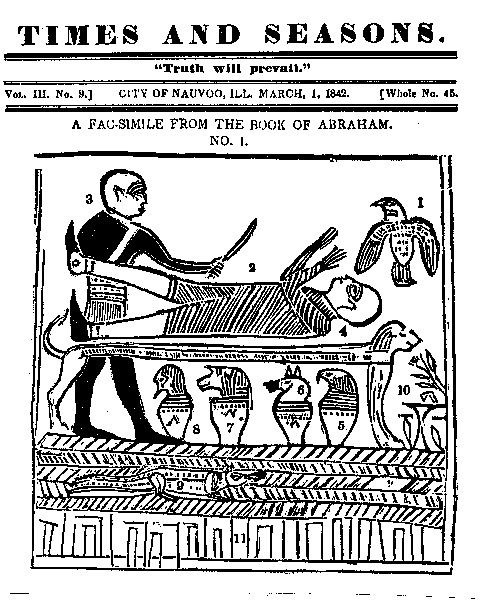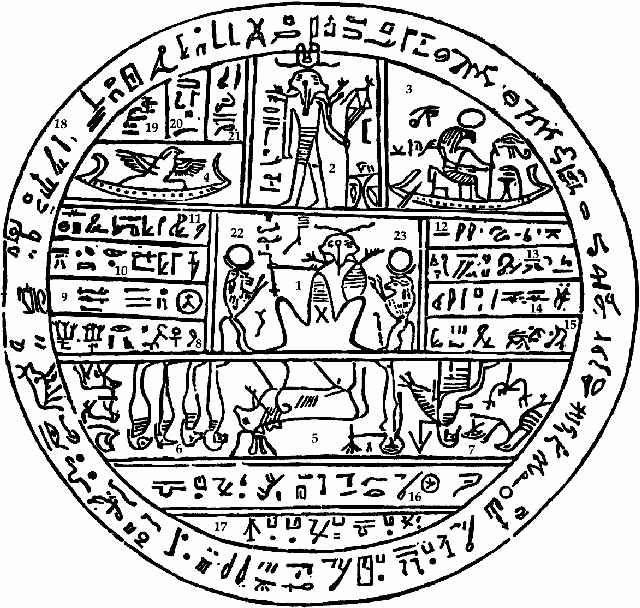Doctrine and Covenants 110:12 After this, Elias appeared, and committed the dispensation of the gospel of Abraham, saying that in us and our seed all generations after us should be blessed.
Many people get side tracked at this point with who Elias is, the opinions on this are varied and diverse, but I feel it is more important to talk about what Elias did. It is interesting to me that there is no mention of “keys” in this portion of the vision, the word “dispensation” is used to describe the interaction that took place. A definition of dispensation is “a general state or ordering of things; specifically: a system of revealed commands and promises regulating human affairs.” I love this definition because when I hear the word order, I automatically think of ordinance.
Elder Bruce R. McConkie explains how the gospel is dispensed:
“Whenever the Lord reveals the plan of salvation anew so that men do not have to rely solely upon prior dispensings from heaven of the same glories and wonders, it is called a dispensation of the gospel. This may or may not involve a restoration of keys and powers and priesthoods. It did when Jesus came to replace the Mosaic dispensation, for instance, but not when the dispensations of Enoch and Noah were ushered in.
We do not know how many dispensations there have been, probably dozens or scores; nor can we be certain how long each lasted, or how one dispensation blended into another. For the present we know only that a gracious God has made his saving truths available at those times and under those circumstances, when men were prepared to receive them.”
I believe that Elias came to reveal, or show, the order of Abraham, or more fully instruct them on the Abrahamic Covenant, here referred to as the gospel of Abraham.
Perhaps at this point it might be interesting to note some historical events that took place immediately preceding the visit of Elias. Just prior to the completion and dedication of the
The scrolls were purchased and Oliver Cowdery and W. W. Phelps, acting as scribes, went to work with Joseph Smith to translate them. Joseph Smith commented, “And much to our joy we found that one of the rolls contained the writings of Abraham, another the writings of Joseph of Egypt.” Oliver Cowdery, in a written letter to a friend stated that the language of the ancient record was very comprehensive and the hieroglyphics exceedingly striking. He noticed that the writers of the scrolls were acquainted with the creation, the fall of man, and their creator. He wrote, “The representation of the Godhead, three, yet in one, is curiously drawn to give simply, though impressively, the writer’s views of the exalted personage.” He went on to describe this information as “an inestimable acquisition to our present scriptures, fulfilling in a small degree the word of the Prophet: ‘for the earth shall be full of the knowledge of the Lord as the waters cover the sea.’” Today we have some of this work recorded in The Pearl of Great Price, known as The Book of Abraham.
Isn’t it interesting that as the saints were busy working on completing the temple, the Prophet was busy learning about the Gospel of Abraham as recorded by Abraham himself?
In the words of Abraham:
Abraham 1:2 And, finding there was greater happiness and peace and rest for me, I sought for the blessings of the fathers, and the right whereunto I should be ordained to administer the same; having been myself a follower of righteousness, desiring also to be one who possessed great knowledge, and to be a greater follower of righteousness, and to possess a greater knowledge, and to be a father of many nations, a prince of peace, and desiring to receive instructions, and to keep the commandments of God, I became a rightful heir, a High Priest, holding the right belonging to the fathers.
3 It was conferred upon me from the fathers; it came down from the fathers, from the beginning of time, yea, even from the beginning, or before the foundation of the earth, down to the present time, even the right of the firstborn, or the first man, who is Adam, or first father, through the fathers unto me.
4 I sought for mine appointment unto the Priesthood according to the appointment of God unto the fathers concerning the seed.
This must have sounded hauntingly familiar to Joseph Smith because this was about the same process that happened to him.

What comes next is priceless:
Abraham 1: 18 Behold, I will lead thee by my hand, and I will take thee, to put upon thee my name, even the Priesthood of thy father, and my power shall be over thee.
19 As it was with Noah so shall it be with thee; but through thy ministry my name shall be known in the earth forever, for I am thy God.
If that isn't filled with Temple symbolism, I don't know what is!

Elder Bruce R. McConkie described the gospel of Abraham as:
The authorization to use the priesthood to perfect eternal family units, even as this commission and covenant was had by Abraham and those who followed him (Millennial Messiah, 119).
Obviously it was the commission, the mission, the endowment and power, the message of salvation, given to Abraham. Thus the gospel of Abraham was one of celestial marriage. And as a consequence, the righteous among all future generations were assured of the blessings of a continuation of the seeds forever, even as it was with Abraham of old (D&C 132.). (Mormon Doctrine, 219-20).
I think I like how Phillip Allred summed it up:
"In sum, the gospel of Abraham amounts to having access to the blessings of exaltation that he and his immediate posterity have already achieved (see D&C 132:29, 37). This gospel, interestingly named after this mortal model (see Abraham 1:18-19), has the power to perfect its adherents and exalt them. Much like the Melchizedek priesthood bears its name (D&C 107:2-4), this gospel of Abraham is none other than the fulness of the gospel of Jesus Christ."
The keys of the Melchizedek priesthood had already been restored by Peter, James, and John, which allowed access to the blessings of the Gospel of Abraham or the fulness of the gospel of Jesus Christ. I believe the return of Elias simply showed Joseph Smith and Oliver Cowdery, and each one of us vicariously, where and how we fit into that Patriarchal lineage or plan of salvation.
With that in mind... perhaps Elias is really a title. Perhaps Joseph and Oliver were so cryptic about this “Elias” because it was a combination of individuals sent to reveal the order, or place that Joseph holds as a dispensation head. For me it doesn’t really matter. What does matter is that this Elias restored the Patriarchal order or revealed our right to our “endowment” from the Fathers. This was the promise made to them and to us.